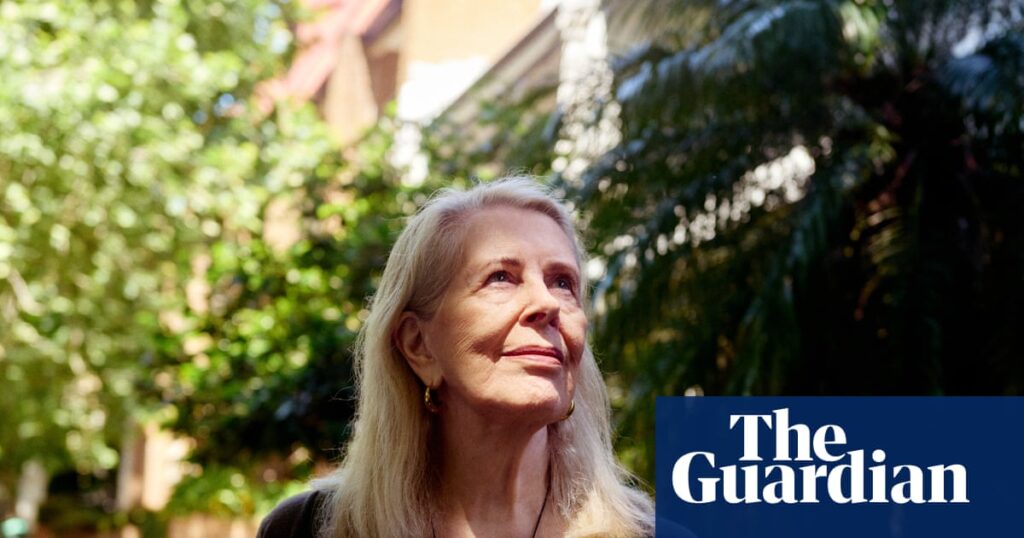
Anne Summers, the renowned author and journalist, finds herself scrutinizing street numbers as she walks through a familiar neighborhood. Pausing in front of a 19th-century mansion, she looks up to its second storey and remarks, “This is where I was arrested.” The mansion, with its immaculate sandstone facade, stands in stark contrast to her memories. “It didn’t look like this then,” she adds.
We are in Potts Point, an area that real estate agents now tout as prime property. However, in 1974, it was known as the Cross, a vibrant neighborhood that captivated Summers when she moved to Sydney from Adelaide, which she describes as “an incredibly boring place.” The neighborhood’s diverse mix of people, vibrant jacarandas, and the sparkling harbor were a stark contrast to her hometown.
The Cross and the Sydney Push
Summers quickly became involved with the Sydney Push, a legendary group of left-wing students, activists, and artists who helped shape mid-20th century Australian culture. Through this group, she joined the Victoria Street Residents Action Group, leading to her arrest while squatting in a mansion to protect it from developers. Although the buildings were preserved for their heritage value, the affordable housing they provided was lost.
As we pass the Chimes building, which is slated for conversion into luxury apartments, Summers sighs, “It’s such a shame.” Her reflections on the past are not just nostalgic but are intertwined with her lifelong commitment to activism and feminism.
From Activism to Academia
One year after her arrest, Summers published Damned Whores and God’s Police, a seminal work that placed women at the center of Australian history and culture. The book sold over 100,000 copies and has remained in print for nearly 50 years, laying the groundwork for women’s history as a field of study.
Back then, Summers felt torn between research and activism. The choice to focus on writing rather than direct action was difficult, as her peers saw writing as less impactful. Now, as a professor at the University of Technology Sydney, she feels less conflicted. “Although I can’t resist getting involved in things, if there’s something there,” she notes.
Her research has quantified the economic impact of domestic violence, revealing a 5.3% employment gap between victim-survivors and women who have not experienced partner abuse in the past five years. This gap extends to income and educational attainment, highlighting ongoing societal challenges.
The Nordic Paradox and Gender Equity
As we walk past rows of terrace homes, Summers contemplates the Nordic paradox, where countries closest to gender equity have higher rates of domestic violence. “We don’t know for sure what’s going on,” she says, but suggests that “part of it is payback.”
“A lot of men resent the fact that women have rights and have entitlements and have freedoms, and especially have economic freedoms that make them less dependent.”
Summers argues that while sensible men see these freedoms as beneficial, others struggle to cope with the change.
Reflections on Global Feminism and Political Systems
Sitting on a bench in Embarkation Park, Summers reflects on the slow cultural change in Australia and her experiences in the United States. Having lived in the US during Trump’s first term, she is horrified by the prospect of a second. “What they’ve done there is so far beyond anyone’s imagination,” she says, particularly regarding the collapse of abortion rights.
Summers contrasts the US and Australian feminist movements, noting that while Australian feminists have collaborated with the government to achieve lasting policy outcomes, the US movement has been hampered by factionalism and the religious right.
“Compulsory voting is … terribly important, because it forces people to make choices and I think it’s also a force for moderation,” she explains, highlighting the differences in political systems.
Legacy and Future of Feminism
Despite the challenges, Summers is optimistic about the progress made since the publication of Damned Whores and God’s Police. “The cultural imperatives on women to be God’s police are so strong, and they still are,” she says, yet acknowledges the significant barriers that have been broken.
Summers recalls her self-doubt while writing the book and is gratified that it continues to resonate with new generations. “I just hope that it might have had some influence in creating this generation of girls who … know they’ve got a real choice.”
As we conclude our conversation, it is clear that Anne Summers remains a vital voice in the ongoing dialogue about feminism, activism, and societal change, her insights as relevant today as they were decades ago.







